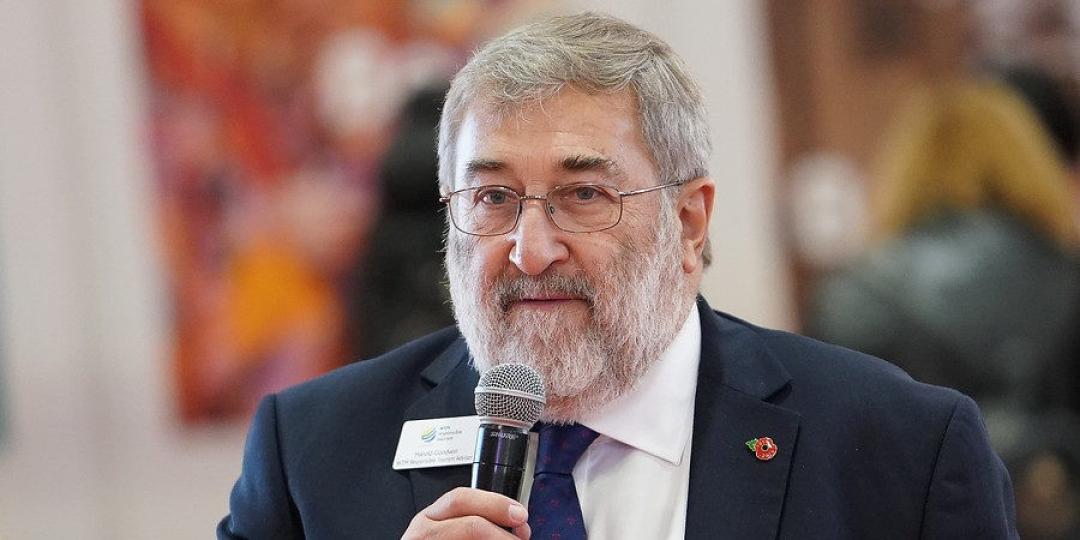Despite growing its impact on economies around the world, Africa’s tourism sector has made little progress towards reducing its environmental impact, despite efforts spanning four decades.
Sustainable tourism came under the spotlight during the World Travel Market 2024 event held in Cape Town last week, with speakers highlighting the importance of sustainable tourism becoming a key focus for tourists, operators and destinations alike.
The World Travel and Tourism Council estimates that the global tourism sector currently contributes between 8-11% of greenhouse gas emissions with transport (aviation, road, rail and other) accounting for almost half of this.
In Africa, tourism accounts for 7% of GDP, and 7.4% of total job creation. As a sector, its GDP contribution is larger than manufacturing and banking combined, and it creates more jobs than mining and agriculture combined, Geoffrey Manyara, Economic Affairs Officer for the United Nations Economic Commission for Africa, said during the Tourism Investment Forum Africa (TIFA) conference – which ran concurrently with WTM.
Sustainable tourism expert Harold Goodwin said: “Tourism has done a lot of good, but it has done a lot of damage as well. And despite identifying the problem over 40 years ago, little progress had been made towards reducing tourism’s impact on the environment.
He emphasised: “We are not making progress fast enough.”
Goodwin continued: “Overtourism is a consequence of doing no more than paying lip service to sustainability. “Tourism is becoming a kind of epidemic around the world, and even remote places like Everest have a problem with over-tourism”.
He added that carbon-offsetting is increasingly seen as the nonsense that it is while the majority of certifications were “opaque and unenforceable” and, in his view, the “safest form of greenwashing”.
Aviation measures
The aviation industry has made some moves to put measures in place to reduce emissions. In Europe, some countries have been cracking down on short-haul flights with bans or increased duties. The EU has also put targets in place from 2025, to compel flights originating in the region to uplift sustainable fuel from airports.
Africa’s aviation sector is the fastest growing in the world but this is off a low base as aviation in Africa accounts for just 2% of the global sector, so some of these measures may not work.
Dave King, Project Manager for Wesgro’s Air Access programme said: “When you look at the full picture and start restricting flights like in Europe, what is the impact on tourism and jobs? In Africa, we don’t have that luxury. We can’t restrict economic growth.”
He said the aviation industry is a particularly soft target but little attention was paid to the oil and gas industry, which is currently only putting 3% of its total earnings back into sustainable development.
“We know there is a solution in aviation, it’s hydrogen” Goodwin said, adding that this will be a positive development. Airbus has targeted 2035 for the first hydrogen-powered commercial aircraft.
Farai Chireshe, Energy Analyst and Project Officer for the WWF, said that sustainable aviation fuel also presented opportunities for new green jobs, along the production pipeline.
“Source markets have regulations coming into place that from a certain date airlines should be picking up aviation fuel. What’s to stop them from wanting to do it on return?” he said.
Responsible tourism
Sustainable tourism and responsible tourism are not the same thing, Goodwin said. But there are a number of steps tourists and operators can take to ensure that travel is more responsible.
These include buying local, preserving and conserving natural and cultural heritage, choice editing (not selling plastic water bottles for example) and engaging with local ministries and councils.
The 2022 Responsible Tourism Charter has also focused on ensuring that communities receive greater economic benefits, experiences are more culturally inclusive, and that opportunities benefit a diversity of people.
Social entrepreneur, Delphino Machikicho, said that tourism had the power to stimulate the country’s township economy, which is estimated to be valued at R1 trillion- with about 60% of this being in the informal sector.
“When we work with entrepreneurs, the biggest thing they complain about is access to market. They can’t access markets beyond their community, but when you bring tourists in, you are exposing them to a bigger market,” he said.
Working with Langa-based township NPO Just Grace, he said he had seen the impact of providing valuable tourism experiences that help people connect and understand the people and the place.
“It’s about having people roast and brew their own coffee or enjoy an African traditional meal of chicken feet, join a sewing experience where we show them how to make a bag, or do a Xhosa immersion experience. It’s important to show people life through the eyes of people within the community,” Machikicho said.
























